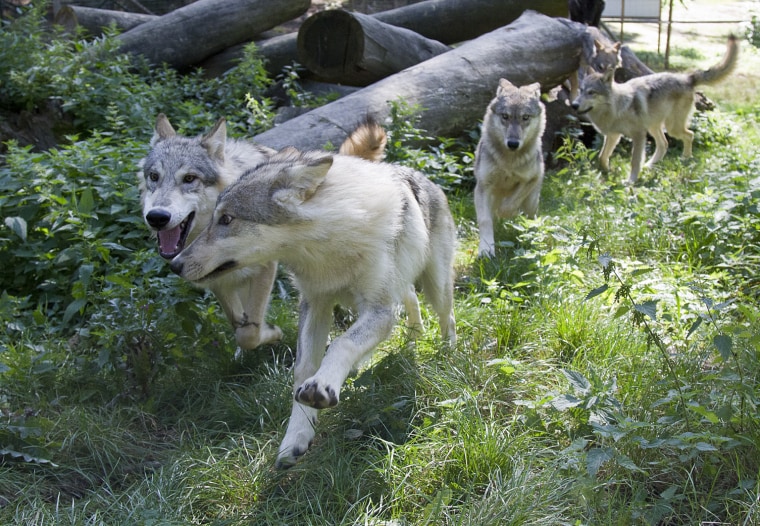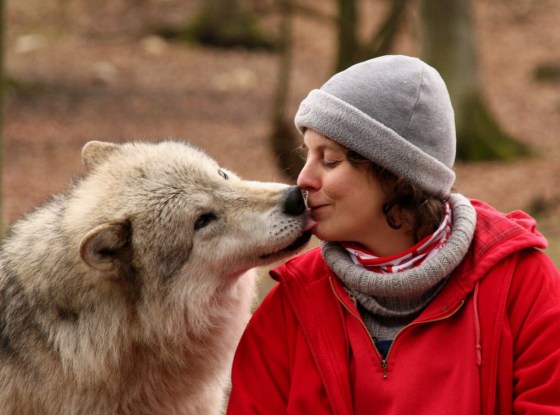Scientific games of hide-and-seek have shown that tamed wolves can pick up on a human's hints as well as dogs can — adding yet another twist to the long-running debate over the domestication of man's best friend.
The experiments at Austria's Wolf Science Center, described in Tuesday's issue of Frontiers in Psychology, support the view that wolves had a pre-existing capacity to learn from social partners — and that humans capitalized on that capacity more than 18,000 years ago.
"If you take wolves and socialize them properly at a young age, and work with them on a daily basis, then yes, you can get them to be cooperative and attentive to humans," said Friederike Range, a researcher at the Messerli Research Institute at the University of Veterinary Medicine Vienna.
Genetic analysis shows that dogs descended from gray wolves, and they're still so genetically similar that they're regarded as belonging to the same species, Canis lupus. But some researchers have suggested that dogs have a unique capacity for interaction with humans.
Range and a colleague at the institute, Zsofia Viranyi, designed a series of food-hiding games to assess the social skills of 11 North American gray wolves as well as 14 dogs. All of the animals were between 5 and 7 months old, born in captivity, bottle-fed and hand-raised in packs.
During each game, a dead chick was hidden in one of three locations in a park meadow. Sometimes the wolves and the dogs were allowed to watch while a human hid the snack. Sometimes the humans only pretended to hide it. And sometimes the canines watched while a dog looked around for the snack.

The wolves and the dogs were all roughly two to four times more likely to find the dead chick when they could see the human hide it. They rarely looked around for the chick when the human was only pretending — which suggests that they were picking up on the human's subtler hints.
The dogs also caught on to the clues signaled by other dogs. But the wolves followed a different pattern: They didn't show as much interest in following up on the dogs' demonstration. Range and Viranyi suggest that this was merely because the wolves could tell that the dogs didn't care much for the dead chick once they found it.
Range told NBC News that the findings ran counter to some previous claims about the special abilities of dogs.
"There have been several hypotheses regarding domestication, including that there are some social skills dogs have that wolves don't, or that dogs can accept humans as social partners and wolves can't," she said. "The story is not that simple — this we can say for sure."
More about the origin of dogs:
- Ancient DNA suggests European hunters tamed the first dogs
- Were the first dogs our best friends, or mutant vermin?
- NBC News archive on the science of dogs
Range and Viranyi are co-authors of "Social Learning From Humans or Conspecifics: Differences and Similarities Between Wolves and Dogs."
Alan Boyle is NBCNews.com's science editor. Connect with the Cosmic Log community by "liking" the log's Facebook page, following @b0yle on Twitter and adding the Cosmic Log page to your Google+ presence. To keep up with Cosmic Log as well as NBCNews.com's other stories about science and space, sign up for the Tech & Science newsletter, delivered to your email in-box every weekday. You can also check out "The Case for Pluto," my book about the controversial dwarf planet and the search for new worlds.
